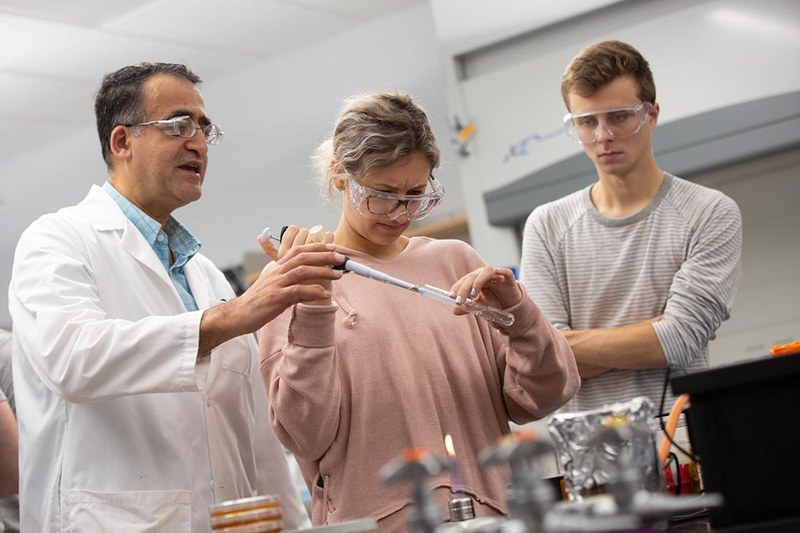Environmental and Renewable Resource Economics Minor
Valuing the environment.
The Environmental and Renewable Resource Economics minor looks at how economic forces can be harnessed to overcome sustainability challenges. The complex problems of the future will need sound financial solutions, and this minor gives you real-world tools to make a difference.
Career paths: Nature meets society.
A minor in Environmental and Renewable Resource Economics helps prepare you to address the human component of natural resource usage with sound, scientific approaches. This minor can launch a career in the renewable energy industry, corporate sustainability, and government.
The Environmental and Renewable Resource Economics minor is a great option if you:
- are passionate about the environment, natural resources, and sustainability
- want to complement your major(s) with problem-oriented economic skills that help you better understand the environment
- want a solid foundation for graduate school
Courses
For details on program requirements, suggested academic plan, and more, see the University Bulletin.
Required courses
- Intermediate Microeconomic Analysis
- Introductory Environmental and Resource Economics
- Natural Resource Economics
Sample additional courses
- Economic Analysis of Environmental and Resource Policies
- Environmental Economics
- International Development, Renewable Resources, and the Environment
- Legal Aspects of Resource Management
Get started on your Environmental and Renewable Resource Economics minor application.
Apply for admission to the Environmental and Renewable Resource Economics minor by consulting with the undergraduate program coordinator, Dr. Timothy Kelsey.





